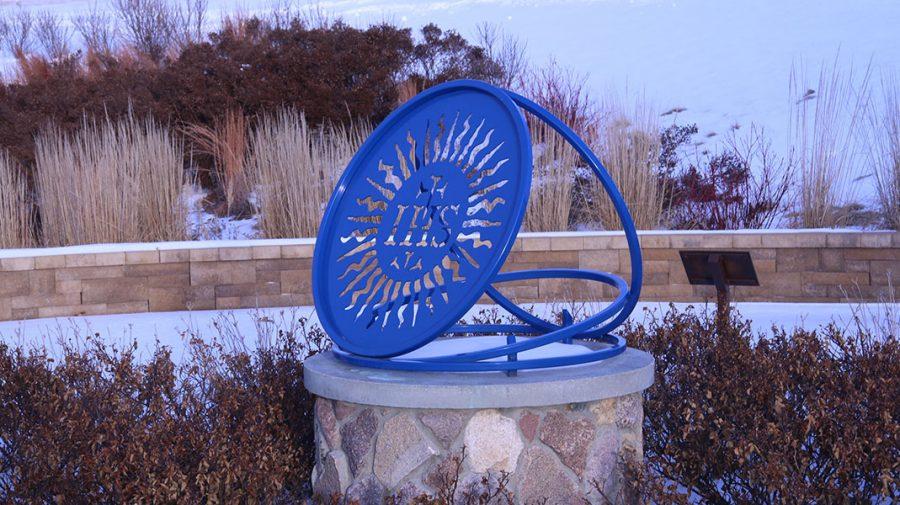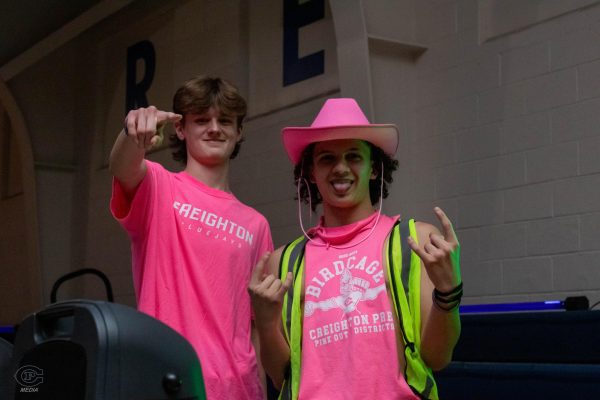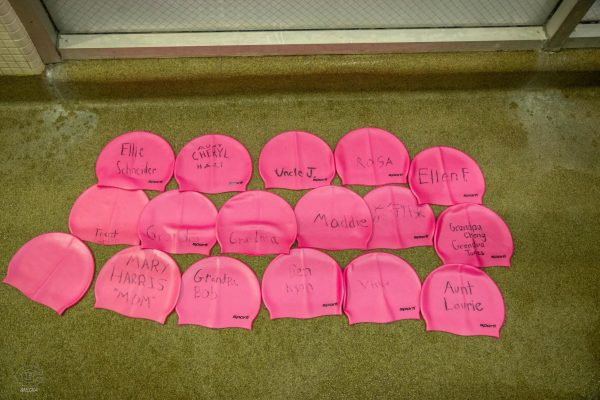Prep Stays Green Since Dow’s Departure
February 10, 2017
Most upperclassmen and faculty remember David Dow for his arduous and demanding chemistry classes or his fervent commitment to recycling. Before his departure, Dow spearheaded Prep’s recycling efforts.
Dow would sort literal tons of paper throughout the school year and sell the sorted paper to recycling centers in order to fund the Science Club’s field trips and other ventures. Dow’s endeavors took a hit when Prep decided to shift from aluminum cans to plastic bottles in vending machines and at the snack shack for athletic events. Plastic bottles, unlike the aluminum cans, are much worse for the environment because they don’t biodegrade.
Dow also essentially carried the recycling programs for common areas, such as the Commons and Heider Center, because of his willingness to sort out the recyclables contaminated with food by hand.
Under the guidance of Dow, Kathy O’Keefe, and Candace Thompson, the Junior Green Jays, Science Club and Architecture Club worked to design a retention garden by the 72 and Western intersection. The retention garden, made possible by a $100,000 grant, eliminates the toxic runoff that would normally go to nearby rivers and creeks from Prep’s facilities. The waste in the water is absorbed and purified by the plants in the garden.
Since Dow has left, the maintenance staff has taken over recycling. Due to a drop in commodity prices for sorted paper, the sorting efforts have not continued. Any recycling in the blue bins featured in classrooms or teacher lounges and offices is collected by work-study students.
The recyclables are then delivered to a recycling center on 74 and Maple once a week by Dan Gable. Recyclables that contain soiled waste (food waste, Kleenexes, etc.) cause that entire blue bin to be dumped, per the sanitation requirements of the recycling center Prep delivers to.
Another new facet to Prep’s recycling program is the Ignatian Carbon Challenge, introduced to the school by Fr. Tom Nietzke, SJ. The challenge is organized through the Jesuit School Network and enables faculty of Jesuit Schools to sign up for challenges separately if they wish.
According to Nietzke, “a big part of the challenge is raising awareness about how we use our energy, how we recycle, and what our waste looks like.”
Since the challenge’s introduction, Nietzke and Creighton Prep principal Jim Bopp have cut the usage of bottled water from faculty meetings and completed an assessment of the lighting energy efficiency at Prep.
Nietzke hopes to convert the entire building to cleaner bulbs with lower energy consumption. However, the upfront costs of this transition would incur heavy expenses. It would cost $500,000 to renovate the lighting in the commons alone. This investment is financially sound, however, because the energy saved on lighting would pay off the initial costs in ten years.
Flik Dining Services have transformed the recycling situation during lunch times.
Neitzke said, “we were filling a dumpster a day with plastic and paper due to the old lunch program.”
The majority of waste generated during those lunches was not recyclable, but Flik’s use of real silverware and plates has cut down the amount of waste substantially.
In Fall 2016, O’Keefe was approached by Bopp and Nietzke. Per their instruction, O’Keefe assembled a Sustainability Club full of students that, according to O’Keefe, “live today with the future in mind.”
Under O’Keefe, environmentally motivated students have performed an assessment of classroom recycling bins and their usage.
This semester, the Sustainability Club looks to debut a campaign that will engage students and inform them on how to adequately recycle in the classroom and in common places, such as the Commons or Heider Center. The club will also look to bring a speaker into the school for Earth Day and partner with Duchesne Academy to show a documentary on the importance of sustainability.





